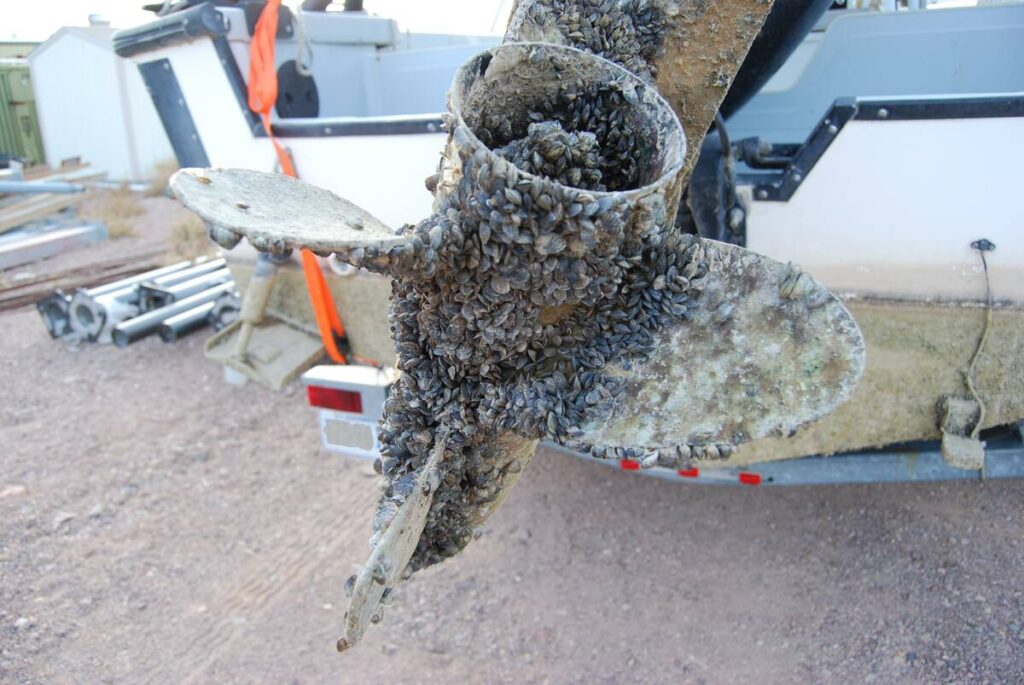Alta. irrigators continue efforts to keep out zebra mussels

For irrigation farmers in Alberta, it is likely when and not if the spectre of zebra mussels arrive.
“The province has ramped up the surveillance of mussels invasive species, which is welcomed news. It is a big issue. Will we be able to keep mussels out of our area forever?” St. Mary’s Irrigation District (SMRID) chair George Lohues said during the organization’s annual general meeting in Lethbridge.
“I just personally can’t see how that is possible. But, we will as long as we can and technology will come along where we can control it within our system.”
Read Also


North Dakota bill could limit pesticide lawsuits
On April 9, the North Dakota state senate voted in favour of a bill that could protect pesticide manufacturers from lawsuits.
The SMRID is Canada’s largest irrigation district, and added 90 parcels heading into the 2025 growing season.
It uses more than 2,000 kilometres of pipes to help supply water to more than half a million acres, which makes zebra mussels a significant threat if the invasive species were to clog up this intricate network.
Zebra mussels can cause millions and even billions of dollars in economic and environmental damage, depending on the scope.
In this year’s budget, the Alberta government committed $18.2 million over five years in the fight against zebra mussels.
Alberta has used the funding to increase its border inspections, increase its number of inspection stations to 11, add two more canine teams and improve its decontamination procedures.
It will be used to fund a tank decontamination pilot project and 14 mobile decontamination systems to improve response times.
Alberta has established the highest fines in North America for failing to comply with inspection requirements, which include $4,200 for failing to stop at an open inspection station and $600 for failing to remove a drain plug when transporting a watercraft.
The province also has an Aquatic Invasive Species Task Force.
“At the SMRID, we are trying to reduce access points to the reservoirs. There’s educational and boat registration campaigns,” said Alex Ostrop, a board member with SMRID and chair of the Alberta Irrigation Districts Association.
“We are funding studies for potash treatments to see how that impacts pipelines. It’s definitely a number-one concern that we need to remain vigilant on.”
Ostrop agreed with Lohues’ assessment that zebra mussels will likely break containment into Alberta at some point, but the biggest risks are likely not from international waters but from Manitoba. They have been found in the Great Lakes region, Manitoba, Ontario, Quebec and New Brunswick.
Zebra mussels can be transported in water on boats, in bait buckets or in bilge water.
Adult mussels attach themselves to boat hulls, docks and other equipment that can be transported over land.
They are highly efficient filter feeders, removing phytoplankton from the water, disrupting the food chain and reducing food sources for other organisms.
Along with changing aquatic habitats, the damage to water intake infrastructure can be immense, not only to irrigation districts, but also power plants and water-treatment facilities.
Source: www.producer.com


